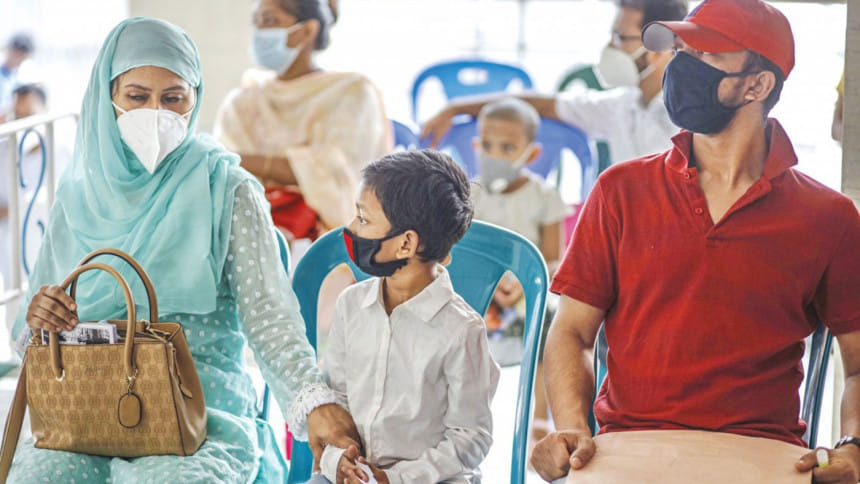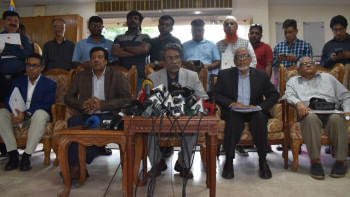Reimagining an inclusive society

On March 12, 2020, the London School of Hygiene & Tropical Medicine organised a discussion titled "Discrimination and Racism During Coronavirus Outbreak". There, Jabez Lam (Manager, Hackney Community Services) mentioned that the centre had received reports from the Chinese and East Asians in London about abuse and harassment since the Chinese government announced the lockdown of Wuhan city from January 23. Since then, there have been many shocking incidents of physical and verbal abuse that people from the Chinese background faced in the United Kingdom, the USA and many other countries across the world. They suffered discriminatory attitudes and behaviours in educational institutions, public transports, workplaces, etc. Many people wrongly associated the Chinese with Covid-19, blaming them for the disease outbreak.
Discrimination and stigmatisation have often been common during epidemics. For example, gay communities were stigmatised as a source of HIV infection for a long time. It took decades of campaign to address the misperceptions. People with HIV/AIDS suffered from rights violations in terms of employment, travel, insurance, immigration, etc. In 2000, when I went to South Africa for the first time to engage in a research project on HIV/AIDS, some people back home were concerned that I might get infected. Their fear was due to the rumours about deliberate attempts by some to infect others with HIV for which there was no evidence.
The Chinese were also considered a source of infection during the SARS outbreak, while Africans faced discrimination during the Ebola crisis. In each epidemic, people try to find an "other" group to blame for "causing" the disease while the focus should be on the disease or virus itself.
In Bangladesh, there have been a number of incidents of stigmatisation and discrimination during the present pandemic. People in some neighbourhoods resisted establishing medical facilities for treatment of Covid-19 in their areas. Healthcare professionals and Covid-19 patients faced eviction threats. Some were forced to self-isolate by flatmates while they had common cold. Many do not feel comfortable in disclosing their condition when they test positive for Covid-19 due to fear of discrimination. These are just a few examples.
Why should we be concerned about discrimination during a public health crisis? Firstly, it is a serious violation of human rights. Moreover, it affects the prevention and control efforts. For example, many people felt hesitant to go for voluntary counselling and testing due to the stigma associated with HIV/AIDS, and that happens in case of other infectious disease outbreaks also. Jonathan Mann led the WHO's Global Program on AIDS at the early stage of the epidemic and was the first director of the Francois Xavier Bagnoud Center for Health and Human Rights at Harvard University. He explained that the groups that suffered marginalisation, discrimination, and stigma (e.g. gay people, injecting drug users, sex workers) were at increased risk of HIV infection and they face further marginalisation after getting infected. Marginalisation is at the root of many epidemics, including Covid-19. In several countries including the United Kingdom and the USA, people from Black and ethnic minority groups have been disproportionately affected by Covid-19, which can be tied to the structural inequalities, racism and discrimination they have endured for many years.
While faced with a deadly disease, people try to cope by blaming someone outside their own social circle. Mass media plays an important role in disseminating information during a public health emergency. The way the media frames a narrative as well as the images it uses influence public perceptions. Today, social media gives a platform to almost everyone to share what they want to and thus, in many cases, misinformation spreads very quickly. Covid-19 is a new virus. Various ideas about its origin and other aspects have been circulated through different channels—each person picked up the story that they wanted to believe in. Many people have inherent prejudice against certain groups, which gets amplified during a crisis, and this leads to racism, xenophobia and discrimination.
I think our policymakers should recognise the discrimination during any epidemic and confront it. They need to debunk myths and dispel rumours circulated through various channels, design effective public health communication strategies, and implement rigorous awareness campaigns. The responsibility of the media in terms of presenting the issue is very important. Each citizen also needs to be conscious and make sure they don't believe in or help spread fake news. They have to be media-literate and identify reliable sources of scientific information to avoid unnecessary fear and panic.
The Covid-19 pandemic has exposed many issues related to every society ranging from inequality to what happens within households. But let us not forget about the discriminatory attitudes towards various groups of people in our societies in everyday life. Due to my work in Bangladesh, I have met families who have for years hidden their child with disability inside their home, as they did not want to face criticism from their neighbours. Haven't we all heard insensitive jokes and comments about people with mental health issues, ethnic minority groups, refugees, etc.? The list goes on.
Having the right legal and policy frameworks in place is vital to a society where all men, women and children can realise their potential. But we need attitudinal changes and should learn to respect everyone despite their identity including health status. Only then shall we be able to create an inclusive society that believes in the inherent dignity of each human being.
Covid-19 has given each of us an opportunity to reflect on various aspects of our lives and the world. At a personal level, we felt very vulnerable, and we have also witnessed genuine compassion and a renewed sense of community in many places. To what extent our politics, economy, society and environment will change as a result of this collective experience is yet to be seen. Whether we are going to have a fairer, greener and more just world will depend on the macro-level socioeconomic policies and decisions on investment priorities. Will we remember our shared humanity, be more empathetic to fellow human beings, and become better prepared to protect their rights in any situation including future pandemics?
Laila Khondkar is an international development worker.

 For all latest news, follow The Daily Star's Google News channel.
For all latest news, follow The Daily Star's Google News channel. 



Comments